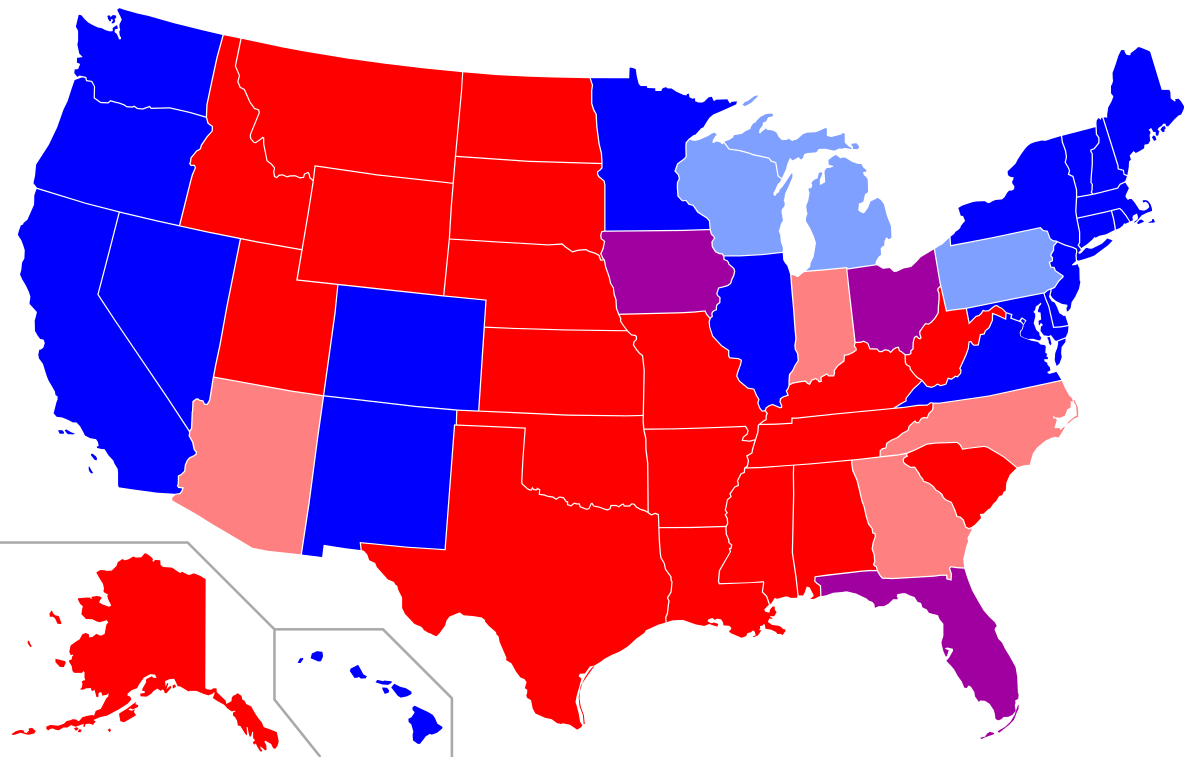The constitution can be amended if Congress proposes a constitutional convention by a vote of two-thirds of both houses or if the legislatures of two-thirds of the States call for a convention to propose an amendment(s). Once the states call for a convention, all hell can break loose. The reason for calling the convention can be ignored, and the entire constitution, including all existing amendments, can be completely rewritten.
That is what happened when the authors of the current constitution did in 1787. They were called to amend the Articles of Confederation, but instead wound up blowing it off and doing a complete rewrite from scratch. That is what the Republican Party wants to do today. It hates the federal government, most civil liberties, consumer protections and environmental protections. The Republicans want to crush all of that into oblivion.
Representative Jodey Arrington, a conservative Texas Republican, believes it is well past time for something the nation has not experienced for more than two centuries: a debate over rewriting the Constitution.
“I think the states are due a convention,” said Mr. Arrington, who in July introduced legislation to direct the archivist of the United States to tally applications for a convention from state legislatures and compel Congress to schedule a gathering when enough states have petitioned for one. “It is time to rally the states and rein in Washington responsibly.”
To Russ Feingold, the former Democratic senator from Wisconsin and president of the American Constitution Society, a liberal judicial group, that is a terrible idea. Mr. Feingold sees the prospect of a constitutional convention as an exceptionally dangerous threat from the right and suggests it is closer to reality than most people realize as Republicans push to retake control of Congress in November’s midterm elections.
“We are very concerned that the Congress, if it becomes Republican, will call a convention,” said Mr. Feingold, the co-author of a new book warning of the risks of a convention called “The Constitution in Jeopardy.”
“This could gut our Constitution,” Mr. Feingold said in an interview. “There needs to be real concern and attention about what they might do. We are putting out the alert.”
While the rise of election deniers, new voting restrictions and other electoral maneuvering get most of the attention, Mr. Feingold rates the prospect of a second constitutional convention as just as grave a threat to democratic governance.
“If you think this is democracy’s moment of truth, this is one of those things,” he said.
Elements on the right have for years been waging a quiet but concerted campaign to convene a gathering to consider changes to the Constitution. They hope to take advantage of a never-used aspect of Article V, which says in part that Congress, “on the application of the legislatures of two-thirds of the several states, shall call a convention for proposing amendments.”
“We need to channel the energy to restore and reclaim this country’s traditional values and founding principles of limited government closest to the people and individual freedom and responsibility,” Rick Santorum, the former Republican senator from Pennsylvania who has become a convention champion, told a conservative conference this spring in the state.
But Mr. Feingold and his co-author, the constitutional scholar Peter Prindiville, say the problem is that there is no certainty that the convention could be forced to stick to a defined agenda. They say that a “runaway” proceeding would be a distinct possibility, with delegates seizing the opportunity to promote wholesale changes in the founding document and veer into areas where they would seek to restrict federal power governing the environment, education and health care, among other issues.
“A convention by its very definition is a free-standing, distinct constitutional body,” Mr. Prindiville said. “It would be the ultimate high-risk gathering.”
The Republican Party wants to (1) crush the federal government, and (2) replace it with more easily corrupted state governments, rampaging political parties, aggressive big corporations, aggressive unregulated capitalism and aggressive Christian fundamentalism. Most personal civil liberties, honest governance, consumer protections and environmental protections, elections are all going to get shafted real hard. 😵💫 But the elites will love it, especially the trickle up of wealth and power. 😊 Actually, it will be a gushing up of wealth and power. 😍
What will save us - the 75% threshold
The barrier to that happening is that three-fourths of the states, 38, have to ratify whatever the convention puts out for ratification. According to the map below, there are about 27 red (20), leaning red (4) and purple (3) states, and 23 blue (20) and leaning blue (3) states. Assuming the convention puts out a far right, autocratic-theocratic-capitalist constitution, it looks like a constitutional convention cannot get ratified unless 11 more states shift far to the right. Unless my state count on this is wrong, that seems unlikely any time soon. 😊


No comments:
Post a Comment